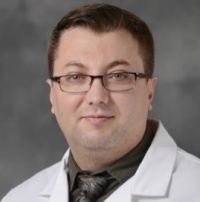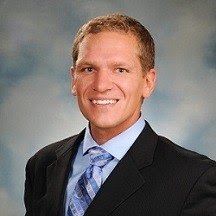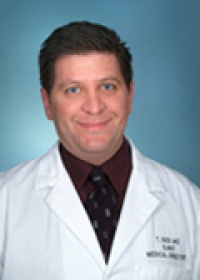
Dr. Ayman Tarabishy, MD
Physiatrist (Physical Medicine) | Pain Medicine
34020 W 7 Mile rd 101 Livonia MI, 48152About
Dr. Ayman Tarabishy is a physiatrist practicing in Livonia, MI. Dr. Tarabishy is a medical doctor specializing in physical medicine and rehabilitation. As a physiatrist, Dr. Tarabishy focuses on a patients ability to function, and can treat multiple conditions that affect the brain, nerves, spine, bones, muscles, joints, ligaments and tendons. Dr. Tarabishy can diagnose and treat pain that is a result of injury, disease or a disabling condition. Physiatrists often lead a team of physical therapists, occupational therapists and physicians in a patients treatment or prevention plan.
Education and Training
ordan University of Science and Technology Medical Degree 0
Board Certification
Pain Medicine (Anesthesiology)
American Board of Pain Medicine
American Board of Physical Medicine and Rehabilitation
Physical Medicine and RehabilitationAmerican Board of Physical Medicine and RehabilitationABPMR
Provider Details

Dr. Ayman Tarabishy, MD's Expert Contributions
What decides the medication before my surgery?
Here are the guidelines for medication classes before surgery according to the ASA (American Society of anesthesiologists) III. Protocol: Medications to still take on morning of surgery A. All Cardiovascular medications 1. See Perioperative Beta Blocker 2. Continued medications include a. Clonidine (use patch if NPO) b. Antiarrythmics 3. Exceptions - cardiovascular medications to stop a. See antihypertensives below (Diuretics, ACE Inhibitors, ARBs, Calcium Channel Blockers) B. Anti-reflux medications (e.g. Omeprazole, Ranitidine) C. Seizure and anti-parkinson medications D. Psychiatric medications 1. Benzodiazepines a. Risk of withdrawal when abruptly stopped perioperatively b. May reduce anesthetic need 2. Antipsychotics a. Decreased Seizure threshold b. Risk of Neuroleptic Malignant Syndrome 3. Antidepressants a. May be continued (risk of Antidepressant Withdrawal symptoms) E. Bronchodilators 1. Bring asthma Inhalers to hospital on day of surgery F. CPAP machine 1. Bring to hospital on day of surgery G. Oral Contraceptives (unless stoped for prevention of DVT) H. Corticosteroids or immunosuppressants 1. Consider Stress Dose Steroids if on equivalent of >5 mg/day in 6 months prior to surgery I. Rheumatologic agents 1. Despite case reports of infection and delayed healing risks J. Levothyroxine (Synthroid) K. HIV Medications L. Pain medications 1. Acetaminophen or Opiates 2. Not Aspirin or NSAIDS IV. Protocol: Medications to not take on morning of surgery A. Diuretics or weight loss medications B. Potassium supplements or Vitamins C. Diabetes medications 1. See Perioperative Diabetes Management 2. Oral diabetes medications are typically held on the day of surgery (see below) 3. Basal Insulin (e.g. Lantus) is taken at half dose (on night before or AM of surgery) 4. Bolus Insulin (e.g. Lispro) is held at home while NPO V. Protocol: Medications to avoid in the perioperative period A. Medications associated with bleeding risk 1. See Perioperative Anticoagulation 2. NSAIDs a. Short-acting agents: Stop 1 day before surgery i. Diclofenac (Voltaren) ii. Ibuprofen (Motrin) iii. Indomethacin (Indocin) iv. Ketoprofen (Orudis) b. Mid-acting agents: Stop 3 days before surgery i. Diflunisal (Dolobid) ii. Naproxen (Naprosyn) iii. Sulindac (Clinoril) c. Long-acting agents: Stop 10 days before surgery i. Meloxicam (Mobic) ii. Nabumetone (Relafen) iii. Piroxicam (Feldene) 3. COX2 Inhibitors (e.g. Celebrex) a. Stop at least 2 days before surgery (Nephrotoxicity Risk) 4. Antiplatelet Agents: P2Y agents - Clopidogrel (Plavix), Brillanta (Ticagrelor), Effient (Prasugrel) a. See Perioperative Antiplatelet Therapy b. Do not stop antiplatelet agents without carefully reviewing indications and minimum duration from stenting i. See Antiplatelet Therapy for Vascular Disease ii. Cardiology should be consulted before stopping P2Y agents in post-stenting patients iii. Consider continuing Aspirin while holding the second antiplatelet agent c. Clopidogrel (Plavix), Brillanta (Ticagrelor) i. Stop at least 5 days before surgery if no contraindication to stopping d. Effient (Prasugrel) i. Stop at least 7 days before surgery if no contraindication to stopping e. Restart 24 hours after procedure or per surgeons discretion 5. Aspirin a. Stop at least 5 days before surgery if no contraindication to stopping b. Consider continuing Aspirin i. Patients with high thrombosis risk (e.g. recent Myocardial Infarction) ii. Minor procedures: Dental, dermatologic and Cataract surgery iii. Consider stopping before Colonoscopy (especially if polypectomy is performed) 6. Other antiplatelet agents a. Cilostazol (Pletal) i. Stop at least 3 days before surgery b. Ticlopidine (Ticlid) i. Stop at least 5 days before surgery c. Aspirin and Extended-Release Dipyridamole (Aggrenox) i. Stop at least 7 days before surgery 7. Warfarin (Coumadin) a. Stop 5 days before surgery b. See Warfarin Protocol for the Perioperative Period (includes Bridging Indications) c. Restart 12 hours after procedure or per surgeons discretion 8. Dabigatran (Pradaxa) a. Consider doubling days of cessation prior to surgeries with high risk of bleeding b. Creatinine Clearance >50 ml/min: Stop 2 days before surgery c. Creatinine Clearance <50 ml/min: Stop 5 days before surgery d. Restart 24 hours after surgery (72 hours after surgery if high bleeding risk) 9. Rivaroxaban (Xarelto) a. Stop at least 1-2 days before procedure (longer if Chronic Kidney Disease or very high risk of bleeding) b. Restart 24 hours after surgery (72 hours after surgery if high bleeding risk) B. Thromboembolism risk 1. Estrogen Replacement, Birth Control Pills a. Ideal to stop at least 1 month before surgery b. Weigh risk versus benefit c. If agent continued, consider DVT Prophylaxis measures 2. SERMs (Tamoxifen, Raloxifene) a. Stop at least 1 week before procedures at high risk for Thromboembolism b. Tamoxifen should only be stopped on Consultation with patient's oncologist C. Diabetes Mellitus 1. See Perioperative Diabetes Management (includes Insulin management) 2. Oral Hypoglycemics a. Hold for NPO period as well as the AM of surgery 3. SGLT2 Inhibitors (e.g. Jardiance) a. Hold for at least 24 hours prior to surgery (risk of ketoacidosis) 4. Metformin (Glucophage) a. Hold at least 24 hours prior to surgery (due to theoretical Lactic Acidosis risk) D. Antihypertensives 1. Diuretics 2. Consider holding Calcium Channel Blockers while NPO 3. ACE Inhibitors and Angiotensin Receptor Blockers (hold one dose before surgery) a. Avoiding within 11 hours, reduces risk of immediate post-induction Hypotension b. Comfere (2005) Anesth Analg 100:636-44 [PubMed] E. Ophthamologic surgery: Cataract 1. Notify surgeon of Flomax use in the perioperative period (due to risk of Floppy Iris Syndrome) a. Ophthalmologists can take preventive measures at surgery if they know of Flomax use b. As a long-acting medication, stopping the medication immediately before the procedure will not alter the risk F. Parkinsonism Agents 1. MAO inhibitors should be tapered off 2-3 weeks before the procedure a. Includes Selegiline and Rasagiline b. Risk of interaction with perioperative Meperidine, Dextromethorphan, Ephedrine, Opioids 2. Avoid stopping Sinemet in perioperative procedure (risk of Parkinsonian hyperpyrexia syndrome) 3. Stay moving in the post-operative period (within 2-3 days of procedure - incorporate PT/OT) G. Miscellaneous agents 1. Alendronate (Fosamax) a. Stop at time of surgery due to instructions that are difficult to follow perioperatively (e.g. NPO) H. DMARDs and TNF Agents 1. Stopping before orthopedic procedures (esp. TNF agents) lowers the risk of Surgical Site Infections 2. Agents are stopped 1-2 weeks before procedure and resumed 1-2 weeks after surgery a. Consult with orthopedics and rheumatology regarding specific medications and patient risk factors 3. den Broeder (2007) J Rheumatol 34(4):689-95 [PubMed] I. Herbal preparations 1. Stop all Herbals and supplements at least one week before surgery a. Safest overall strategy due to numerous combination products 2. Specific agents with known risk in the perioperative period a. Echinacea b. Ephedra (should be avoided in general) c. Garlic (discontinue at least 7 days before surgery) d. Gingko (discontinue at least 36 hours before surgery) e. Ginseng (discontinue at least 7 days before surgery) f. Kava (discontinue at least 24 hours before surgery) g. St. John's Wort (stop at least 5 days before surgery) h. Valerian (slowly taper off before surgery) i. Ang-Lee (2001) JAMA 286:208-16 [PubMed] READ MORE
What treatment should I get for nerve root compression?
Treatment options of nerve root compression depends on the cause and the severity. Most small disc bulges burnout and resolve spontaneously with time or with some physical therapy, sometimes injections help. On the other hand, significant mechanical compression of the nerve root, especially when it involves elements other than a disc bulge like thickened ligament, bone spurs, spine bones malalignment may never get better without surgical decompression. The standard of care for most nerve root compressions without alarming neurological deficits like marked weakness of major muscle groups, balance difficulties, or changes in bowel or bladder habits is to start with physical therapy or chiropractic care along with some anti-inflammatory medications, weight loss, back and core muscle strengthening, smoking cessation and sometimes work/lifestyle modifications as a first line. If things don’t improve, then consider injections. If things still don’t improve, then surgical consultation is necessary. READ MORE
Pain in the back. Is it due to epidural?
There are no clinical studies that suggest that epidural injections during delivery or cesarean section causes chronic back pain. Many times pregnancy itself whether from the weight of the baby, or the hormones that relax for back and pelvic muscles, or poor posture because of the full uterus is the cause of back pain after delivery. Pregnancy hormones sometimes mask this pain while pregnant and as their levels go down after delivery the pain becomes more apparent. Especially for the caring mother that is now carrying the baby. If the epidural injection was complicated, like many attempts were done, and some of them landed where they’re not supposed to be, it may cause some postprocedural pain, although unlikely to become chronic. READ MORE
Areas of expertise and specialization
Faculty Titles & Positions
- Voluntary Faculty Wayne State University 2017 - 2017
- Medical Director Enhance Center for Interventional Spine & Sports Medicine in Livonia, Michigan -
Awards
- America’s Top Physicians Award 2017
- America’s Top Physicians Award 2018
- America's Top Physicians America
Treatments
- Endoscopic Discectomy
- MILD Minimally Invasive Lumbar Decompression
- Spinal Cord Stimulation
- OsteoCool spine metastasis ablation
- Intradiscal stem cells
- Autologous Stem Cells
- PRP platelet rich plasma
- EMG/NCS electromyogram and nerve conduction studies
- Genicular nerves cooled radiofrequency ablation
- Cancer Pain Management
- Prialt (Ziconotide) pump
- Trigeminal nerve block
- Sphenopalatine ganglion block
- Botulinum Toxin
- Joints injections
- Hyaluronic Acid
- Epidural Injections
- Transforaminal Injections
- Facet Joint Injections
- Radiofrequency Ablation
- Facet Blocks
- Sacroiliac Joint Injections
- Discogram
- Occipital Nerve Block
- Intractable headache IV infusions
- Endoscopic Rhizotomy
- Kyphoplasty
- Sympathetic plexus blocks and ablations
- Prp
- Stem Cells
- Sports/Regenerative Medicine
- Dorsal Root Ganglion (DRG) Therapy
- Peripheral Nerve Stimulation
- Intracept
- Vertiflex Spinal Stenosis Treatment
- Sacroplasty
Professional Memberships
- North American Spine Society
- North American Neuromodulation Society
- World Institute of Pain
- American Society of Regional Anesthesia and Pain Medicine
- American Academy of Physical Medicine and Rehabilitation
- Spine Intervention Society
- American Academy of Regenerative Medicine
- Brain Injury Association of Michigan
- American Interventional Headache Society
- American Institute of Ultrasound Medicine
- Professional Member American Academy of Regenerative Medicine
Fellowships
- Henry Ford Health System anesthesia-based ACGME accredited pain
Experience & Accolades
- Professional MemberNorth American Spine Society
- Professional MemberNorth American Neuromodulation Society
- Professional MemberWorld Institute of Pain
- Professional MemberAmerican Society of Regional Anesthesia and Pain Medicine
- Professional MemberAmerican Academy of Physical Medicine and Rehabilitation
- Professional MemberSpine Intervention Society
- Professional MemberAmerican Academy of Regenerative Medicine
- Professional MemberBrain Injury Association of Michigan
- Professional MemberAmerican interventional headache society
- Professional MemberAmerican Institute of Ultrasound Medicine
Dr. Ayman Tarabishy, MD's Practice location
Enhance Center for Interventional Spine and Sports
34020 W 7 Mile rd 101 -Livonia, MI 48152Get Direction
Enhance Center for Interventional Spine & Sports Medicine
34020 7 Mile Rd Suite 101 -Livonia, MI 48152Get Direction
Dr. Ayman Tarabishy, MD's reviews
Write ReviewPatient Experience with Dr. Tarabishy
Media Releases
Get to know Pain Management Specialist Dr. Ayman Tarabishy, who serves patients in Southeast Michigan.
Being a Triple board-certified pain management specialist, Dr. Tarabishy focuses on minimally invasive spine and sports interventions, neuromodulation, headaches, electrodiagnostic medicine, and regenerative medicine. He is the Medical Director of Enhance Center for Interventional Spine & Sports Medicine in Livonia, Michigan.
As the premier interventional spine and sports medicine practice in southeastern Michigan, Enhance Center focuses on finding the root of the problem and offering permanent minimally invasive solutions instead of short term results.
Dr Tarabishy specializes in the diagnosis and treatment of spine disorders, pain management, and sports medicine. The state-of-the-art facility provides interventional pain management, neuromodulation, minimally invasive spine and sports interventions, spasticity management, musculoskeletal ultrasound, and intractable pain treatment plans.
With more than a decade of experience treating patients with non-surgical orthopedics, Dr. Tarabishy embraces rehabilitation and management of health conditions such as failed back surgery, cancer pain, and complex regional pain syndrome. He has specialized training in minimally invasive spine, tendon, and nerve surgeries, a training that only a handful of interventional pain and sports physicians have received.
With his unique training, Dr. Tarabishy provides patients with endoscopic discectomy and rhizotomy, minimally invasive lumbar decompression, as well as intracept and percutaneous tenotomy such as Tenjet and Tenex. He also offers spinal cord stimulators, dorsal root ganglion stimulators, peripheral nerve stimulators, and pain pumps. He is the only physician in Michigan comfortable in providing cervical and upper thoracic DRG stimulation.
Academically, Dr. Tarabishy earned his medical degree from the Jordan University of Science and Technology. He completed his residency in physical medicine and rehabilitation at Wayne State University and an anesthesia-based ACGME accredited pain fellowship with Henry Ford Health System.
Before becoming Medical Director of Enhance Center, he held positions at interventional pain and inpatient rehabilitation clinics, as well as consulted for traumatic brain injury and headaches. He directed EMG labs and arthrogram injections for MR arthrograms at diagnostic facilities, served at an academic complex regional pain syndrome center of excellence, and practiced at Wayne State University Athletic Injuries Clinic. In addition, he consulted on minimally invasive surgery for a major regional neurosurgery, pain management, and orthopedic practice.
In good standing with a number of professional organizations, Dr. Tarabishy is a member of the North American Spine Society, the North American Neuromodulation Society, the World Institute of Pain, the American Society of Regional Anesthesia and Pain Medicine, the American Academy of Physical Medicine and Rehabilitation, the Spine Intervention Society, the American Academy of Regenerative Medicine, the Brain Injury Association of Michigan, the American Interventional Headache Society, and the American Institute of Ultrasound Medicine.
Achieving diplomate status, he is a Diplomate of the American Board of Physical Medicine and Rehabilitation & the American Board of Interventional Pain Physicians as well as the American Board of Brain Injury Medicine.
Pain management is a branch of medicine employing an interdisciplinary approach for easing the suffering and improving the quality of life of those living with chronic pain. A pain management specialist is a doctor who specializes in pain medicine, focusing on the evaluation, treatment, and prevention of pain.
In honor of his clinical expertise, Dr. Tarabishy received America’s Top Physicians Award in 2017 and 2018.
Recommended Articles
- When Is Thyroid Surgery Necessary?
Overview of ThyroidectomyHypothyroidism, as the name indicates, refers to an underactive form of the thyroid gland. It means that the thyroid gland fails to produce a sufficient amount of thyroid hormones in the body. The removal of the thyroid gland will further reduce the production of hormones,...
- Is Hashimoto's Thyroiditis a Genetic Disorder?
Hashimoto’s thyroiditis is an autoimmune disease, wherein the immune system turns against the body's healthy cells. In people with Hashimoto’s disease, their immune system attacks the thyroid gland. The thyroid gland is a small gland located at the base of the neck just below the Adam's apple....
- What Is the Epiglottis?
What is Epiglottis?Epiglottis is a elastic flap of tissue that is shaped like a thin leaf and situated at the root of the tongue. It protects the opening between the vocal cords, known as the entrance of the glottis. Epiglottis is covered with mucous membrane, which is a yellow elastic cartilage...
- Recovery After a Laminectomy
Laminectomy is a surgical procedure done for the removal of the lamina, bone spurs, and ligaments that may be putting pressure on your spinal nerves and causing lower back pain. The procedure is said to be one of the most commonly performed back surgeries. Below is a detailed information on what...
- What Are the Risks of Laminectomy?
Your doctor will first attempt to give you other alternative treatments before recommending surgery. If your back pain still persists after treatment, your doctor may suggest for surgery as one of the solutions. Laminectomy is the most probable surgical procedure that you will have to undergo.Facts...
- Different Types of Physicians Explained
Doctors or physicians are categorized according to different factors including medical specialties and subspecialties. Most doctors specialize in a specific area of medicine. This article provides a summary of the different types of doctors in the medical field. AllergistsAllergists are also...
Nearby Providers
- Dr. Benjamin Dirkx D.O.3601 W 13 Mile Rd Royal Oak MI 48073
- Dr. Dawit Teklehaimanot D.O.Physical Medicine And Rehabilation And Pain Consul Southfield MI 48075
- Dr. Neal M Alpiner M.D.4949 Coolidge Hwy Royal Oak MI 48073
- Dr. Kenneth William Rabe D.O.261 Mack Ave Detroit MI 48201
- Dr. Kertia Libretto Black MDRehabilitation Institute Of Michigan Detroit MI 48201
- Dr. Timothy P Sesi M.D.44555 Woodward Ave Pontiac MI 48341
Nearest Hospitals
BEAUMONT HOSPITAL - FARMINGTON HILLSl
28050 GRAND RIVER AVENUE FARMINGTON HILLS MI 48336BEAUMONT HOSPITAL - FARMINGTON HILLSl
28050 GRAND RIVER AVENUE FARMINGTON HILLS MI 48336









